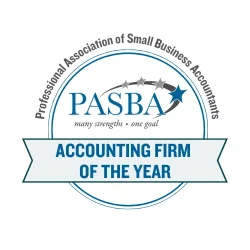If you’re a business owner or deeply involved in corporate operations, you may have recently encountered a significant development in compliance regulations: the new FINCEN requirement for Beneficial Ownership Information (BOI), effective as of January 1, 2024. This mandate demands that businesses disclose information about individuals who possess primary ownership or control over the company.
In essence, beneficial ownership identifies those individuals who hold significant ownership stakes or wield substantial influence over the decision-making processes within a company. Despite not being officially listed as shareholders or directors, these individuals play a pivotal role in shaping the company’s direction. Compliance with this requirement is crucial as it provides regulators, investors, and other stakeholders with essential transparency regarding the ownership structure of businesses.
Here, we offer a comprehensive guide to understanding Beneficial Ownership Information, aiding in navigating FinCEN regulations.
What Is A Beneficial Owner?
A beneficial owner refers to a person who ultimately owns or controls a business entity, even if their name does not appear on any official company records. The following are some examples of individuals who may be considered beneficial owners whether they are direct or indirect owners:
- Shareholders with at least 25% ownership
- Directors or executives with decision-making power
- Individuals who have control over the company’s financial affairs, such as signing authority for bank accounts or tax returns
- Persons who control a significant portion of voting rights or decision-making power
- Individuals with indirect control through other entities or legal arrangements
- Individuals with the authority to to appoint or dismiss specific officers or a majority of directors (or equivalent body) within the reporting company.
Not unlike legal ownership, which refers to the person or entity listed as the official owner of a business, beneficial ownership focuses on the true owners and controllers behind the scenes. For example, if a holding corporation owns a company, the individuals behind that holding corporation would be considered beneficial owners.
Why Should Beneficial Ownership Information Be Accurately Reported?
Providing precise beneficial ownership information (BOI) is crucial for maintaining transparency and meeting regulatory standards, reporting to the Financial Crimes Enforcement Network (FinCEN). FinCEN utilizes this data to identify and address potential risks such as money laundering, corruption, and terrorist financing.
Moreover, accurate reporting of beneficial ownership information can also help businesses build trust with their stakeholders. Investors and consumers are increasingly interested in knowing who ultimately owns or controls the companies they invest in or do business with. Failure to disclose this information can result in reputational damage and loss of trust, which can severely impact a company’s success.
What Type Of Information Needs To Be Reported?
- Names: The legal and beneficial owners’ full names must be included in the report as well as the legal name of the company and any trade names (“Doing business as” or “trading as”)
- Contact information: The U.S. address of the business (not a P.O. Box) as well as the residential address of the beneficial owners are both required.
- Identifying information: The business will need to provide both the Taxpayer Identification Number and the Secretary of State Statement of Information. The owner(s) will need to include a picture of any government-issued identification documents such as a passport or driver’s license. Additionally, you will need the FinCen ID for the Beneficial Owner
Who Is Subject To The BOI Reporting Rule?
The beneficial ownership reporting rule applies to all corporations, limited liability companies (LLCs), and other legal entities formed under state law in the United States. This includes domestic and foreign businesses registered to do business or have a physical presence in the U.S.
Reporting Entities
Under the BOI reporting rule, “reporting entities” must report their beneficial ownership information to FinCEN. There are two types of reporting entities:
- Domestic reporting companies: These are companies formed under a state’s laws in the United States. They must report their beneficial ownership information to FinCEN, which maintains a secure database of this information. They include corporations, limited liability companies, partnerships, and other entities.
- Foreign reporting companies: These are businesses that have a presence in the U.S. but are formed under the laws of another country. They must also report their beneficial ownership information to FinCEN if they are registered with the Securities and Exchange Commission (SEC) or have their securities listed on a U.S. stock exchange.
Exemptions
While most businesses must report their beneficial ownership information, some exemptions are in place. There are 23 kinds of entities exempt from the beneficial ownership information reporting requirements. These include publicly traded companies that meet specific requirements, many non-profit organizations, and certain large operating companies. These entities are already subject to strict disclosure and reporting requirements. Additionally, individuals who own less than 25% of a company’s equity interests are not considered beneficial owners and do not need to be reported.
When Must Your Company Submit its BOI Report?
If your company was created before January 1, 2024, you must submit your initial beneficial ownership information report by January 1, 2025. However, if your company is created or registered between January 1, 2024, and December 31, 2024, you have a grace period of up to 90 calendar days after receiving actual or public notice of your creation or registration being effective to submit your initial report.
If your company is created or registered on or after January 1, 2025, you have a shorter grace period of only 30 calendar days after receiving actual or public notice of your creation or registration being effective to submit your initial report. This timeline starts from the date that you receive actual notice of your creation or registration being effective, or from the first public notice provided by a secretary of state or similar office, whichever comes first.
No Annual Filing
There is no annual reporting requirement for businesses once they have submitted their initial beneficial ownership information report. However, they are required to submit updated or corrected reports whenever there are triggering events, such as changes in beneficial ownership or reported information. It’s important to note that an updated report must be submitted within 90 days of these events. This ensures that the beneficial ownership information remains accurate and up-to-date.
How to File Your BOI
To file the BOI form, go to this FinCEN website link. To download the PDF version, you will need Adobe 8. Or you can choose the second option and file directly online. Any individual authorized by the reporting company, whether it be an employee, owner, or third-party service provider, can submit a BOI report on behalf of the company. A lawyer or accountant is not necessary to file this report.
Penalties For Non-Compliance
Non-compliance with BOI reporting requirements under the Corporate Transparency Act carries significant penalties. These include civil fines of up to $500 per day for ongoing violations, and criminal penalties of up to two years imprisonment plus a fine of up to $10,000. Willful violations encompass failure to file initial or updated reports, providing false information, or neglecting to correct previously submitted data. These penalties serve as a deterrent, ensuring businesses adhere to reporting standards and safeguard the integrity of the U.S. financial system. Beyond financial repercussions, non-compliance can tarnish a company’s reputation and hinder business prospects, eroding trust with clients, partners, and investors.
J.R. Martin & Associates: Your Partner in Company Best Practices
At J.R. Martin & Associates, we’re committed to keeping you informed about compliance issues relevant to your business. While the BOI report may not necessitate our direct involvement, we ensure that our clients are aware of their compliance responsibilities. With our expertise and dedication to excellence, we offer tailored solutions to help your business uphold the highest standards and achieve its objectives. Let us serve as your trusted partner in navigating the complexities of corporate compliance and optimization.



